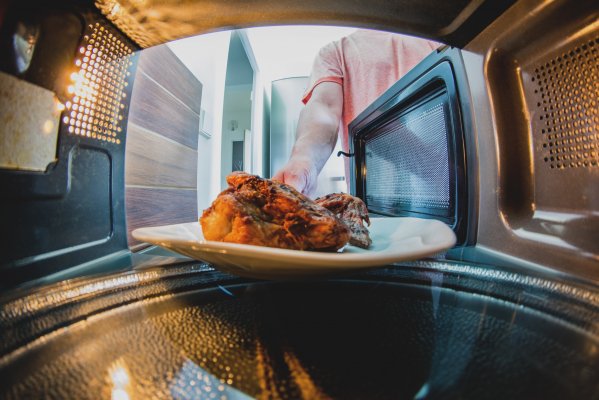Microwave ovens are among the most popular kitchen appliances and you can find them in every household.
They are versatile, they are time-efficient, easy to use and they take up less space than regular ovens. They are indeed indispensable for the modern man.
But in spite of their popularity, microwaves are also controversial; there are still a lot of people who prefer to go the traditional way when it comes to preparing or heating their meals, because they believe that microwaving is bad for our health, may cause cancer or lead to other affections. They are afraid that food is going to become “radioactive” once microwaved or it’s going to lose all the important nutrients.
A lot of studies have been conducted to elucidate this mystery and to find out once and for all whether microwaves are bad for our health or not. They have all reached the same conclusion: not only aren’t microwaves harmful when it comes to cooking or heating our food, but in some cases, they are actually healthier for us than traditional flame-based ovens/stoves.
How do microwaves work
What happens inside a microwave when you insert your plate? How does your food get heated or cooked, without fire being involved?
Microwaves use, well…microwaves, in order to cook the food. Microwaves are basically waves of energy, which resemble radio waves. Microwaves make the water molecules in food to vibrate really fast, thus producing heat which cooks the food. Microwaves can pass through almost any type of material: glass, plastic, paper and more. They are reflected by metal, which is why you’re not allowed to use metal plates or recipients when using the microwave. The heat produced by the microwave is absorbed by the food. The ones that take the least amount of time to cook are foods that are really watery, especially veggies and fruits.
Are those radiations toxic? Can microwaves lead to cancer?
Any type of electromagnetic energy emits radiation. There are several types of radiations and they are categorized according to the size, strength and frequency of the wavelengths.
The most important types are ionizing or non-ionizing. The ionizing ones can be dangerous because they are very strong, can even destroy the atoms in your body. They can cause cancer and they can even modify the DNA or the cells in your food. However, non-ionizing radiation is less powerful and harmless. While it is powerful enough to boil water, that’s pretty much as far as it can go, because it is not strong enough to actually irradiate your food or alter the DNA. Microwaves ovens, TV antennas, mobile phones all emit non-ionizing radiation.
Moreover, there are types of foods, especially meat products and foods that are rich in protein, which are safer to be cooked in a microwave than the conventionally way, because during cooking, they can form certain carcinogenic compounds. The higher the temperature used for cooking and the longer the cooking time, the bigger the risk of those compounds forming. Since microwave ovens reduce the cooking time considerably, there’s a lower chance for those compounds to form.
Do microwaves destroy the nutrients in your food?
The fact that microwaves destroy the nutrients in your food is another busted myth. Not only they don’t destroy nutrients, but there are foods that are actually safer and healthier to be cooked in a microwave, than using a traditional, fire-based stove/oven. One example would be foods high in vitamin C. It is well known that vitamin C is easily destroyed by cooking. The longer you cook something containing vitamin C, the more you’ll destroy the nutrient. That is why it is actually better to cook foods that are high in vitamin C into the microwave oven, because they’ll take considerably less time to cook than if you choose to bake or boil them. The shorter the cooking time, the more nutrients you preserve. This is a general rule for all foods packed with vitamins/minerals, not just for those high in vitamin C.





